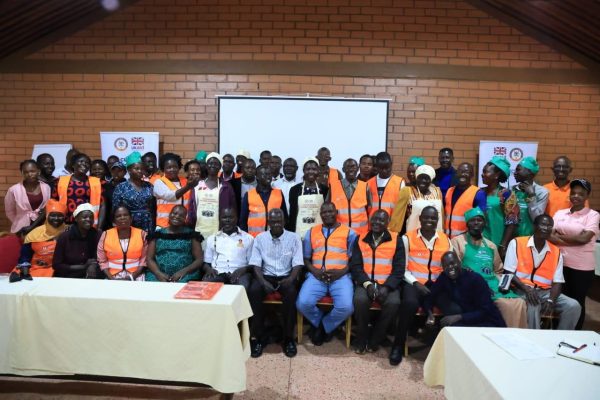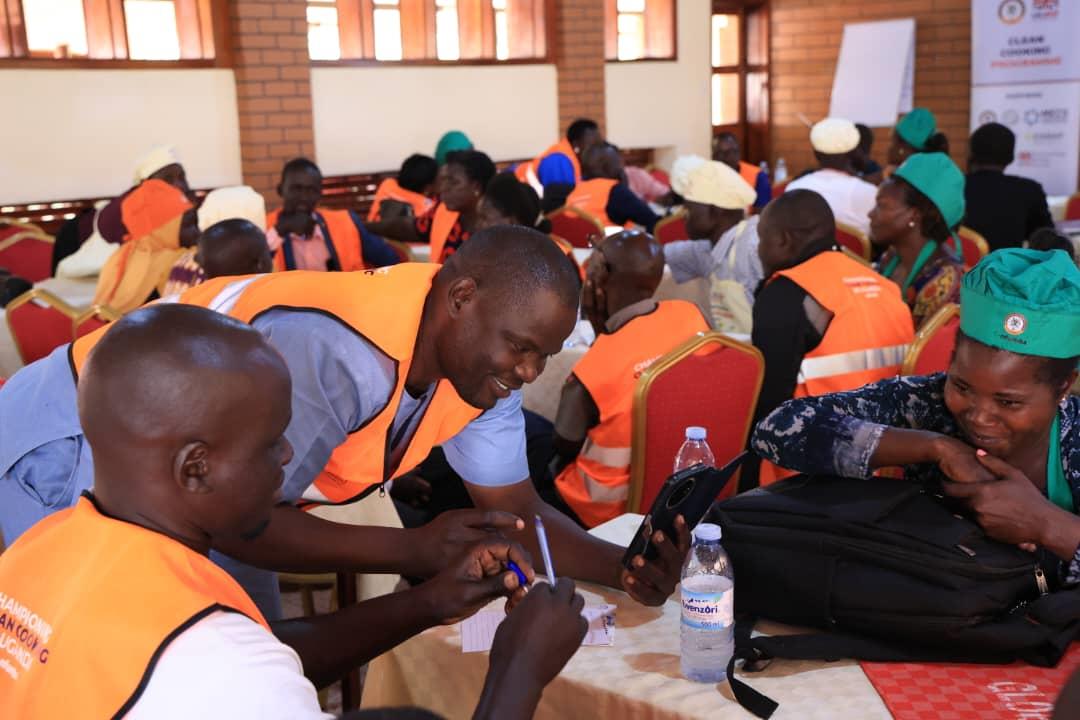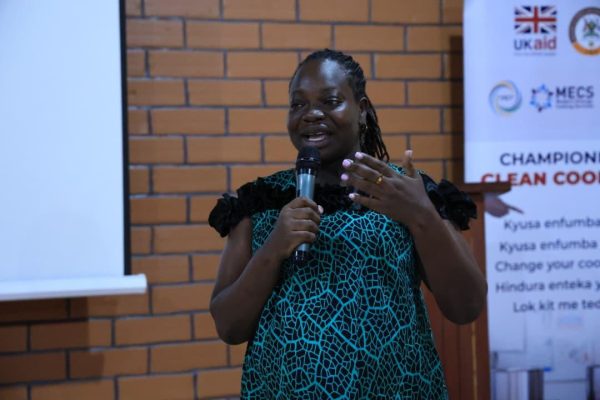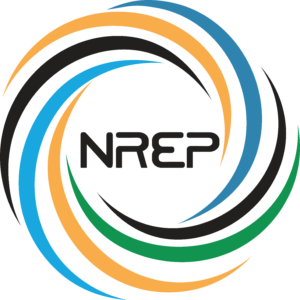Gulu City officially launched its Clean Cooking Champions Engagement on August 29, 2025, marking a significant milestone in the journey towards healthier, safer, and more sustainable households. The event, held at the Global Friendship Hotel, brought together 59 participants, comprising community leaders, environmental officers, cultural representatives, and everyday champions committed to driving change. These champions were identified through the Clean Cooking Outreach Campaign held in Gulu City in April 2025. The initiative was spearheaded by the Ministry of Energy and Mineral Development (MEMD) in collaboration with the National Renewable Energy Platform (NREP) and supported by the UK Government. The purpose of the engagement was clear: to empower participants with the knowledge, tools, and confidence to advocate for clean cooking solutions within their communities. With support from district leaders, the media, and technical experts, the campaign is set to transform not just kitchens, but also lives, through reduced smoke-related illnesses, lower household costs, and environmental conservation.

Key Highlights and Observations
The engagement commenced with the distribution of branded materials and information packages to participants, small but symbolic steps that emphasized readiness for the task ahead. Dr. Paul, a key speaker, set the tone by drawing inspiration from three pioneering women in Kabale District, who have successfully mobilized savings groups, churches, and Mothers’ Union circles to spread the message of clean cooking. Their example, amplified through local radio stations, demonstrated how grassroots mobilization can have a profound and widespread impact on the community.
Dr. Paul emphasized that no single approach fits all contexts and encouraged the Gulu team to design strategies tailored to their unique realities. He commended the women-led advocacy as a particularly effective channel and pointed out that support materials such as aprons, banners, and demonstration Electric Pressure Cookers (EPCs) were not only practical but also powerful advocacy tools.
Environmental and health concerns also took center stage. Dr. Paul reminded participants that mothers and children remain the most vulnerable to kitchen smoke, which leads to severe health risks. He also noted the economic burden of charcoal, now costing between UGX 80,000 and UGX 100,000 per bag, compared to the cheaper and more reliable electricity-based cooking.
Access to electricity emerged as a major theme during the engagement. The national electricity access rate stands at 57%, encompassing both grid and off-grid connections. Specifically, approximately 19% of households are connected to the national grid, while around 38% rely on off-grid solutions such as solar systems and mini-grids (UBOS). This dual approach underscores the importance of both infrastructure expansion and decentralized energy solutions in addressing Uganda’s electricity access challenges. To bridge this gap, participants were also encouraged to promote alternative clean solutions such as ethanol and briquettes. Affordability was acknowledged as another barrier, but government subsidy programs, installment plans, and group purchasing models were highlighted as practical pathways to ease the burden.


Participants later broke into group discussions where they crafted one-minute “clean cooking campaign stories,” focusing on relatable language, highlighting invisible harms of smoke, and issuing clear calls to action. The exercise underscored the importance of storytelling in advocacy.
Ms. Joyce Latigo, Environmental Officer for Gulu City, applauded participants for their commitment and urged the establishment of a Clean Cooking Hub in Gulu. She noted that such a hub would serve as a one-stop center for demonstrations, information sharing, and access to clean cooking technologies, accelerating adoption across the city.

Key Challenges and Lessons Learned
Several challenges surfaced during the engagement. Chief among them was the limited household access to electricity, compounded by frequent blackouts that discourage confidence in electric cooking. Affordability remains another hurdle, with many households finding EPCs and related technologies out of reach despite the long-term savings they bring. Misinformation and cultural hesitations, especially among elderly community members, also slow down adoption.
However, the session made it clear that solutions exist. Grassroots women’s groups, installment payment options, and public platforms such as radio can all serve as powerful catalysts for behavioral change. The greatest lesson was simple yet profound: that change is possible when local champions lead it.
Conclusion and Next Steps
The Gulu city Clean Cooking Champions Engagement was more than just a workshop; it was the launch of a movement. Champions are now equipped with tools, knowledge, and inspiration to carry the clean cooking message into homes, churches, savings groups, and marketplaces. The next steps include establishing the proposed Clean Cooking Hub in Gulu City, strengthening media advocacy, and supporting champions with continuous mentorship. With collective effort, Gulu City is well on its way to becoming a model for clean, affordable, and sustainable cooking practices in Uganda.



